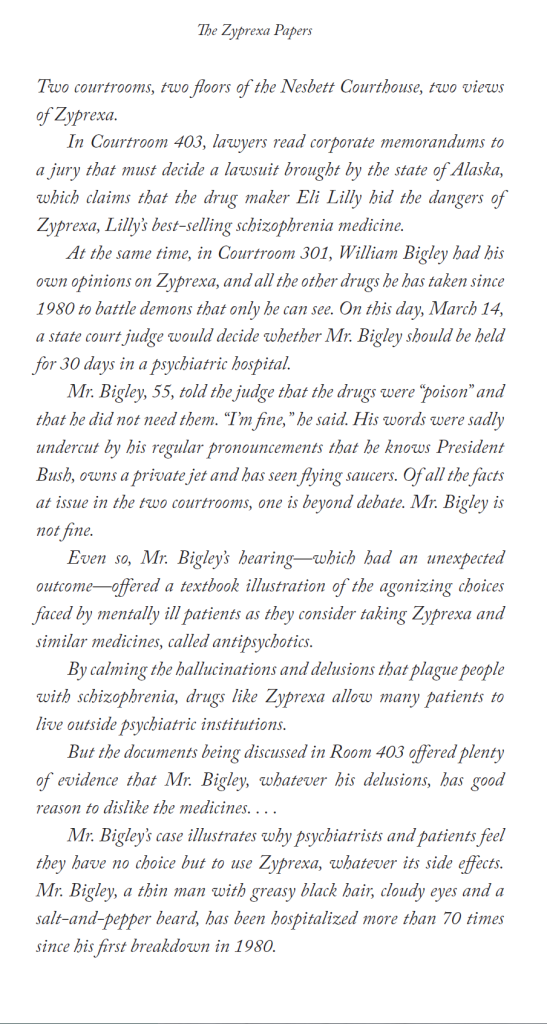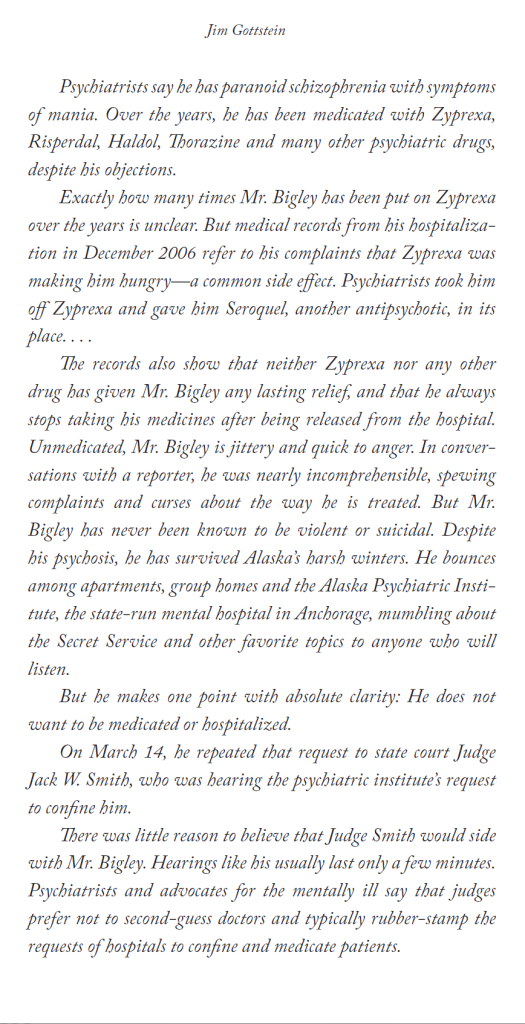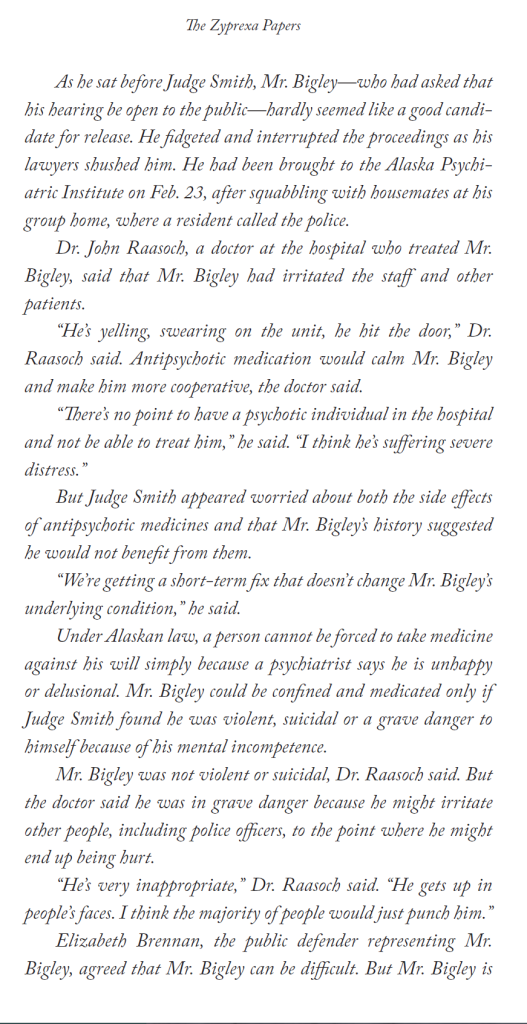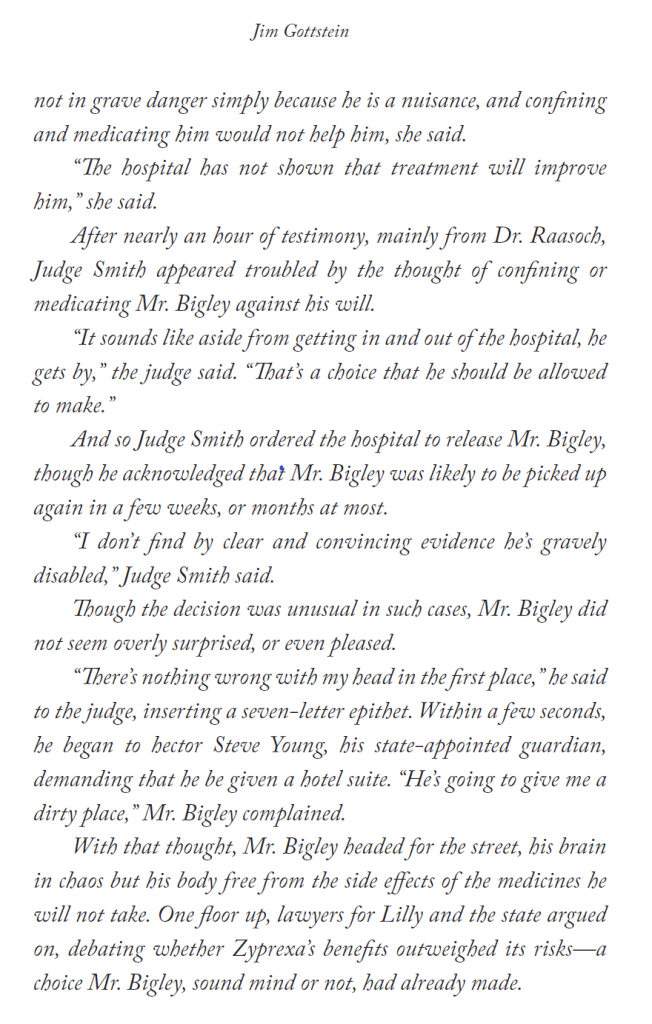Today’s Solution is NOT Drugs, Drugs, Drugs…

Perhaps the worst thing that can happen to any Alaskan is to be accused of having mental illness and dealing with the associated system for that affliction. Our crazy courts and institutions dedicated to supposedly helping people with mental illness are hopelessly stuck in an antiquated model of care that only a courageous public-interest attorney can ever expect to impact.
It’s not like Alaska doesn’t have the money to provide top-of-the-line mental health care. With Statehood the Alaska Mental Health Trust was established to provide care after traditional methods sent people suffering symptoms of mental illness for indefinite stays at Morningside Mental Hospital in Portland, Oregon, from 1904 to 1960.
[1]Wikipedia: Morningside Hospital
This crisis–as with Alaska government Education Factories in nearly 50 Districts—results in paying too much for piss-poor outcomes.
A recent White Paper–required as part of an Alaska Supreme Court Decision–addresses this problem, but of course it will be put on a shelf with all the other research by well-meaning people, to languish just as people in mental health facilities like Alaska Psychiatric institute (API) must also languish.
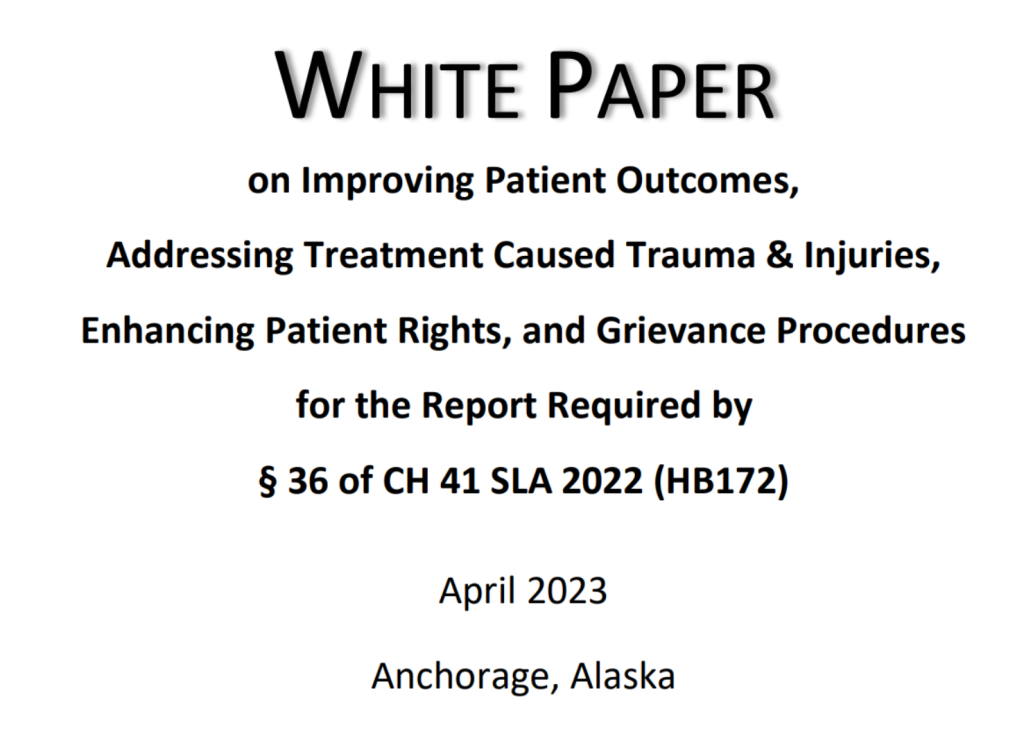
https://psychrights.org/whitepaper.pdf
[2] PsychRights Whitepaper
[3] History of the Alaska Mental Health Trust
A Disrupter of the Status Quo

My brilliant long-time friend, Jim Gottstein, IS a Public Interest attorney, and his success at impacting this broken system has come at some great personal and professional cost. In Jim’s 2020 book, The Zyprexa Papers Gottstein details the David v. Goliath battle he fought in Alaska AND New York courtrooms against the Pharmaceutical giant Ely Lilly. At one point double-dealing Lilly threatened to crush him professionally and financially.
They didn’t succeed, and in over these years Gottstein has won five cases dealing with rights of persons having Mental Health issues before the Alaska Supreme Court.
4] Five Cases won by Gottstein before the Alaska Supreme Court.
The Zyprexa Papers is a Great Read
The court case against Gottstein didn’t care if thousands of people were being killed by a drug known to cause diabetes and other health issues; the court was concerned about whether Gottstein and others leaked documents proving documentation of damage being done, despite a court order requiring secrecy. Ultimately, with release of the Zyprexa Papers the New York Times did a series of explosive stories by Alex Berenson documenting abuse for financial gain.
[5]NYT Stories RE Zyprexa Papers
A Distinguished Career
During Jim’s career he has become a subject matter expert after whipping the sorry asses of some of those who exploit mentally ill Alaskans. Jim had leveraged an Alaska case—in which he believed his client had been forcibly subjected to Zyprexa (which he was)–to subpoena and publish documents that showed Eli Lilly knew from its own research that its Zyprexa drug for Schizophrenia was causing great harm to users. But Zyprexa was Lilly’s largest selling drug–to places like API—for corporate managers to let monetary settlements for harming customers reduce production and distribution to vulnerable people diagnosed with mental illness. That’s not all Gottstein’s courageous act revealed about what Ely Lilly was doing, but I don’t want to spoil it for readers–who really need to buy his book and read it!
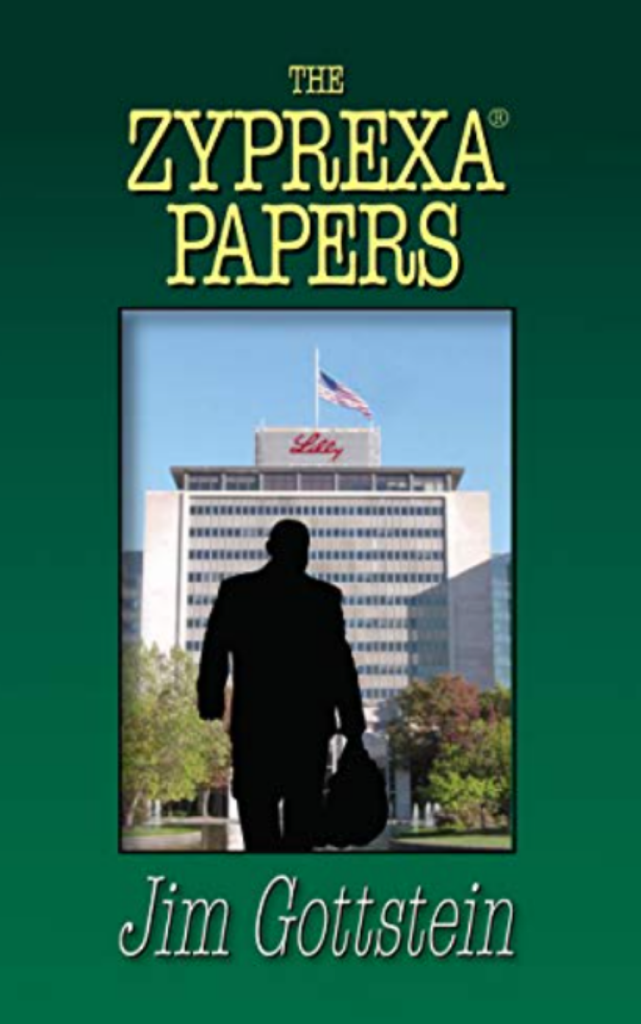

[6] PsychRights Website
The Primary Issue is Forced Drugging of Patients
Against The Law
It happened to Gottstein.
My part of Jim’s story goes back to when I had a publishing and public relations business behind a laundromat on Spenard Road in the early 1980s. Gottstein stopped by one day and declared he was going to run for the Alaska Legislature and wanted me to help him make an announcement. I took a picture and produced b&w prints in my darkroom, wrote up a press release, and the next day his picture and story were on the front page of both the Anchorage Times and the Anchorage Daily News.
Easy Money!
I was pleased enough with the result that I wanted to move into campaign mode, but when I tried to call Jim to talk about next steps, I couldn’t reach him. I couldn’t get anybody to tell me how to reach him, either. Since he had paid me on the spot all I could do was cool MY jets until he contacted me—which he never did–because Jim had a psychotic event which caused him to be picked up by Anchorage Police Department officers and taken to Alaska Psychiatric Institute to cool HIS jets for 30 days.
A Harvard-trained attorney and member of the Alaska Bar, Jim was given psychotropic drugs and made to do the things we all saw portrayed in that classical movie One Flew Over the Coo Coo’s Nest.”
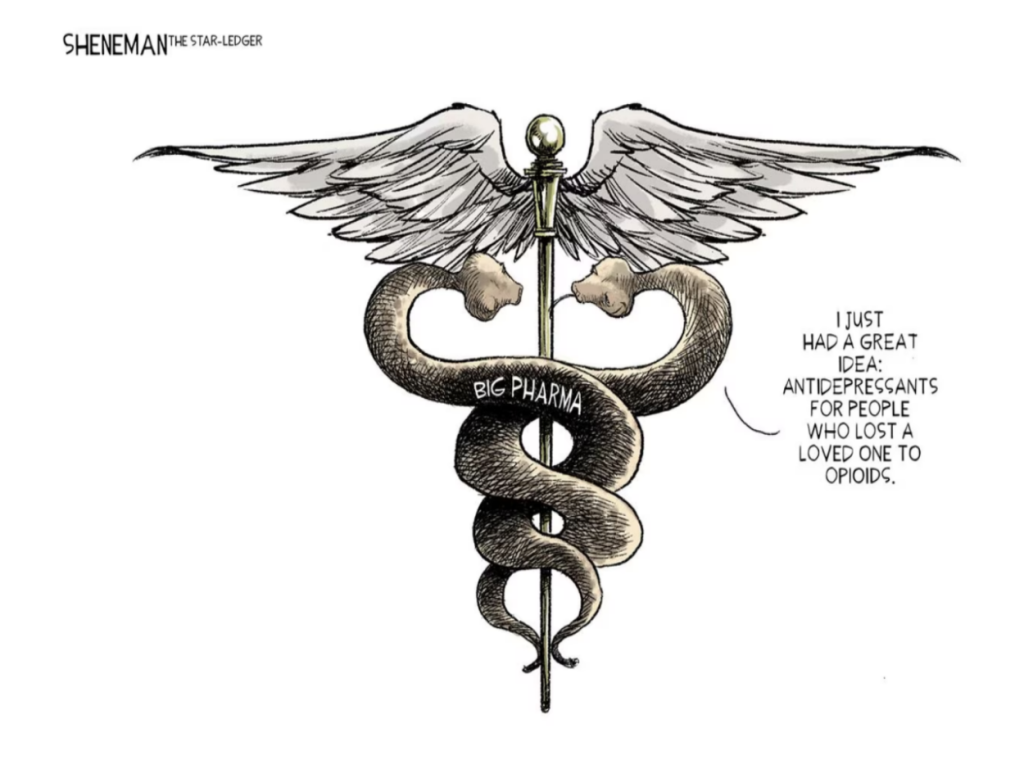
This transformed Jim into a fighter for psychiatric rights.
[7] ADN-Alaskan tackles mental health care reform
Offering Free Legal Services to People Deemed Crazy
To get started Jim did something like what I did decades later when I wanted locals in Mt. View to join my Nine Star.org Adult Basic Education classes. I put up fliers on every bulletin board. Jim handed out fliers offering free legal counsel to visitors at API—until he was stopped because this is State Property–and besides public defenders who handled clients like they were in a speed-dating event, were GUD ‘NUF.
One client from this effort was Bill Bigley, to whom Jim dedicates The Zyprexa Papers book. Bigley was a chronically institutionalized Alaskan denied his basic human rights, processed through a system more interested in controling unruliness than in honoring the law. Gottstein was looking for someone to represent so he could subpoena a certain Dr. Egilman for the secret documents that became known as the Zyprexa Papers.
From the Zyprexa Papers, Page 7:
Instead of following the law the judge did what doctors suggested. From this early lesson Gottstein learned to take any case to Jury Trial if possible.
Drugs, Drugs and More Drugs
The means for control were powerful psychotropic drugs, and when they didn’t work the proscription amount was increased. Psychology is a Social Science, you know.
This writer recalls the first day of Psych 101 class at Anchorage Community College in the early 1970s. The instructor went around the room and asked all the students why they were taking this class. As I listened to the response of my classmates I became worried enough that I almost got up and left the class. I didn’t relate all my personal issues; I was only able to offer that I was interested in human development.
I have had other psychology classes since then, including graduate classes in counseling, and recognize actively helping people through use of therapy is difficult, best described by the joke asking how many psychologists are required to change a lightbulb?
A. It only takes one but the lightbulb has to really want to change.
From Gottstein’s Book: Chapter 10: Bill Bigley and Me
I got to know Bill, and about him, and was really struck that there but for the grace of God go I. He was born just two months before I was. He was first hospitalized in April of 1980, when he was 27. I was hospitalized two years later and was lucky not to have been made permanently “mentally ill,” as he was.
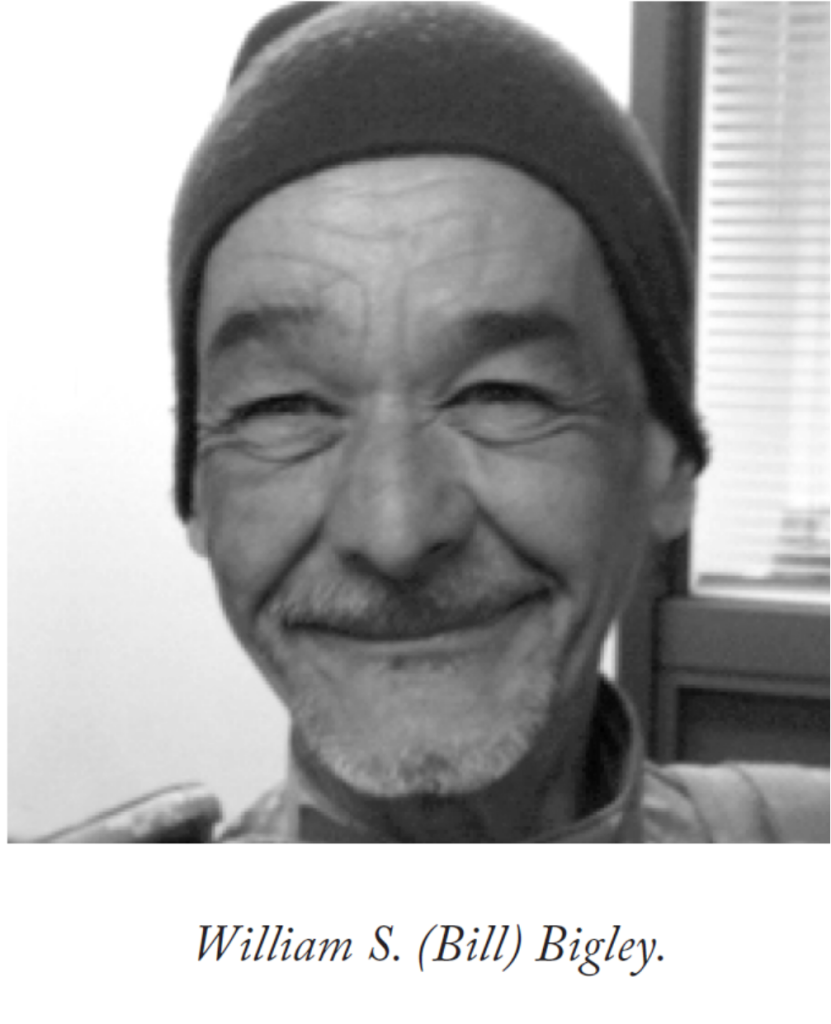
Screenshot from the book:
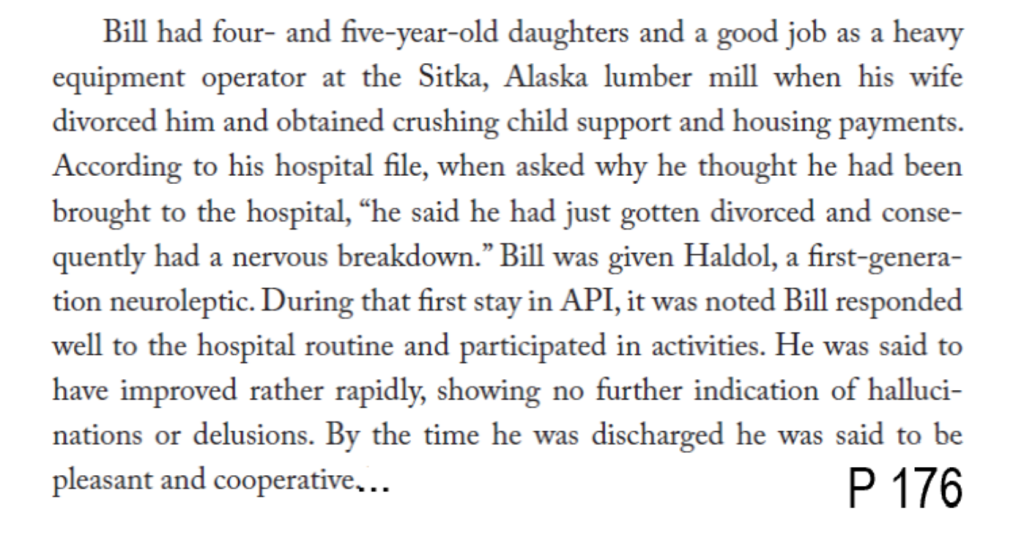
This Bill Bigley was very different than the belligerent fellow Alaskan this writer personally witnessed during a hearing in an API room, with Gottstein as his counsel, before Judge William Morse. Now, a combination of forced incarcerations, unwanted psychotropic drugs, and other indignities, had turned a hard-luck Charlie into a mad-as-hell (but harmless) monster. After witnessing this proceeding I wrote a letter to Judge Morse registering my concerns for the back room process.
[8] Letter to Judge Morse
Our Pay-to-Play Court System
Bill’s tragic story, and Gottstein’s attempts to get API to follow the law, form the backdrop to the larger public interest case against Ely Lilly, which transcends our hick Alaska Court System and goes all the way to New York courts. There, Gottstein and his friends in organizations with names like MindFreedom International, determined that telling truth about what Lilly was doing was so important that it was worth taking some risks. The huge settlements Lilly had already paid included non-disclosure agreements for people who were paid a pittance while their lawyers got rich as a result of someone elses suffering, so the illegal harm could continue for future persons diagnosed with schizophrenia, and damage payments factored in as simply a cost of doing business for all of Big Pharma.
Jim candidly explains in the book what happened to cause the Zyprexa Papers to be distributed to a network of Psychiatric Survivors–and how he didn’t technically break the law–but New York Judge Ratched Weinstein didn’t agree. The most important thing in Weinstein’s Courtroom was to follow the specific law and in this case the issue was not how many people were harmed—even killed–by Lilly’s actions, but rather how Lilly was harmed by broadcast of it’s legal-system-protected payoff scheme.
Gottstein’s Goose was Cooked!
The courts assure everyone loses slowly together, so of course the wheels of justice moved slowly as revelations of damages and corruption by Ely Lilly became public in a series of articles by Alex Berenson in the New York Times. As a typical Alaskan (myself included) Jim is quoted calling Big Pharma out. This just made the pack of high-powered New York attorneys work longer hours to create more fictional harm done to the company by Gottstein revealing truth.

How State of Alaska Incompetence Let Lilly Skate
The previously mentioned MindFreedom International organization filed a brief February 7, 2008 mounting a full-scale attack on the Secrecy Order hiding knowledge about harms caused by Zyprexa. Even after Gottstein had asked for return of the documents from everyone he had given disks of the Zyprexa Papers to (as ordered to do), it was too late. They were everywhere on the internet, revealing that Lilly knew it was selling poison as a cure for schizophrenia and whatever else ails you.
But the lies and coverups weren’t working anymore.
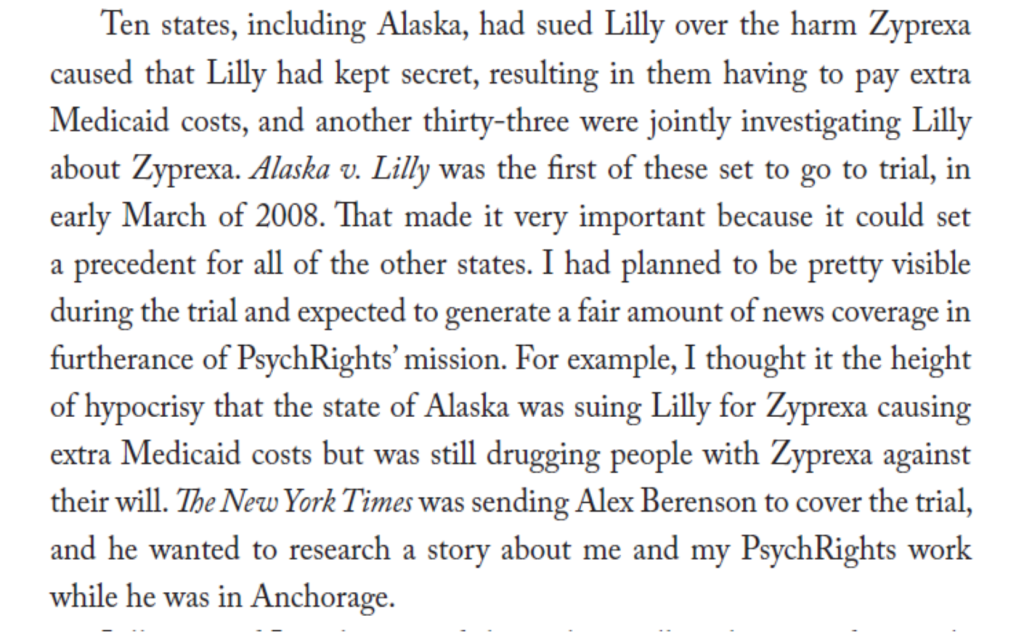
BUT, Jim was in a bind because of Judge Weinstein’s decision, and Lilly insisted he could not attend the hearings or talk with any media about the case if they were ever to settle. Gottstein reluctantly agreed to not participate in return for a promise to settle after this trial.
The State of Alaska failed to produce the database to support its claims for costs in treating diabetes caused by Zyprexa. Over the 14-day trial further damaging information about Lilly practices in hiding damages caused by Zyprexa were revealed. Alaska should have recovered a lot more for damages. Lilly attorneys were able to point out that while Alaska was charging that Zyprexa cost the state so much more for Medicaid it was still using the drug on Alaskans at API!
How Our State Government Rolls…
In a fascinating turn of events, Bill Bigley was facing yet another involuntary commitment and forced drugging trial in the same courthouse where Alaska v. Lilly trial was being held! Bill had asked that his trial not be at API but at the normal courthouse open to the public with his public defender. Gottstein and NYT Reporter Berenson were both in attendance and I have taken the liberty of putting in References to the Berenson story, as recorded in The Zyprexa Papers, for reader’s to savor as I have savored it.
[9] One Drug, Two Faces, Alex Berenson, NYT March 25, 2008.
The State of Alaska–because it was unable to retrieve from its computer system the cost of treating patients for diabetes and other medical problems caused by Zyprexa–settled for a measely $15 million. This was a huge break for Lilly because the Alaska v Lilly settlement formed the basis for settlement of a large number of other state’s lawsuit against Lilly, according to Gottstein.
Lilly then refused to settle with Gottstein, of course. Their word was never worth anything. Jim had been duped but Lilly was not off the hook and I will not spoil the climax here by revealing what happened as a result of all Jim’s efforts.
If you have read this far you must go to your favorite brick-and mortar or online bookseller NOW and buy this book and read it. It is possible for Alaskans to be simultaneously proud of what Jim Gottstein has done for PsychRights in our state, and disgusted with how our state government is run at almost every level by bumpkins on their Alaska Adventures until they can retire and go home.
The record of this is undeniable.
References:
[1]Wikepedia” Morningside Hospital
https://en.wikipedia.org/wiki/Morningside_Hospital_(Oregon)
Drug Therapy Revelation:
In 1955, Morningside came under attack after a bill was introduced by U.S. Rep. Edith Green (D) of Oregon, to transfer care of Alaskan patients to Alaska. Questions of financial impropriety raised during hearings led to an investigation of the hospital by the U.S. General Accounting Office in 1956. By this time, Wayne Coe’s son Henry Coe, had entered the family business. The Coes were accused of using hospital funds for personal expenses, including trips to South Africa and Mexico, a beach property in Gearhart and a ranch in Stanfield, Oregon. The Coes were also accused of “outrageous abuse of privilege” including the use of patient labor for home and hospital building and maintenance, under the guise of occupational therapy. The Coes denied the charges, defended the hospital practices and called the investigation “rude, uncivil and insulting.” Ultimately, no criminal charges were filed and Morningside was fully reaccredited in 1957. By 1964, Morningside’s reputation had recovered to the degree that it was featured in an Oregonian article about its success as an “open hospital.” Under the open hospital model, patients were controlled through sedatives rather than lock and key.
[2]History of the Alaska Mental Health Trust
[3]Five Cases won by Gottstein before the Alaska Supreme Court.
2006, Myers v. Alaska Psychiatric Institute, in which the Alaska Supreme Court ruled Alaska’s forced drugging procedures unconstitutional, requiring the state to prove by clear and convincing evidence the forced drugging is in the person’s best interest and there is no less intrusive alternative.
2007, Wetherhorn v. Alaska Psychiatric Institute, held Alaska’s involuntary commitment statute unconstitutional to the extent that someone could be committed for being gravely disabled without the state proving the person is unable to survive safely in freedom.
2008, Wayne B. v. Alaska Psychiatric Institute, ruled the State could not dispense with the requirement of a transcript when involuntary commitment and forced drugging cases are referred to a master for hearing and recommendations.
2009, Bigley v. Alaska Psychiatric Institute, held on constitutional grounds that (a) if there is a less intrusive alternative that is “feasible” for the state to provide, it must provide it or let the person go, (b) a petition for forced drugging must include information about the patient’s symptoms and diagnosis; the medication to be used; the method of administration; the likely dosage; possible side effects, risks and expected benefits; and the risks and benefits of alternative treatments and nontreatment, and (c) the hospital must give the person’s lawyer their medical chart sufficiently in advance to allow for adequate preparation.
2016, In the Matter of Heather R., the Alaska Supreme Court decided, based on statute, it was improper to order Heather to be picked up for an involuntary psychiatric evaluation without the Court first interviewing Heather, if it was reasonably possible.
[4]NYT Stories RE Zyrexia Papers
Mr. Gottstein is most known around the US and internationally for subpoenaing and releasing the Zyprexa Papers in late 2006, resulting in a series of New York Times articles and an editorial calling for a Congressional investigation. In January of 2009, Eli Lilly pled guilty and agreed to pay $1.4 Billion in civil and criminal fines for the activities revealed by the Zyprexa Papers.
[5]PsychRights Website
https://psychrights.org/
[6]ADN-Alaskan tackles mental health care reform
https://www.psychrights.org/news/ADN11-6-05GottsteinEfforts.html
From that story:
His first breakdown came in 1982. He had finished an undergraduate degree in three years, went to Harvard Law School, thought of himself as the sort who could handle whatever a fast-track life might demand of him. He had just taken a big mental health case, one that would eventually result in the creation of an estimated billion-dollar trust of land and money to benefit Alaska’s mentally ill. For days at a time he was too wired to sleep.
One night he jumped out of a second-story window in his underwear and was hauled away to Alaska Psychiatric Institute in a straitjacket, according to a story he posted online. He was medicated with a powerful psychiatric drug.
“I mainly needed sleep but API was so scary and noisy that I didn’t sleep well,” he wrote.
[7] Letter to Judge Morse
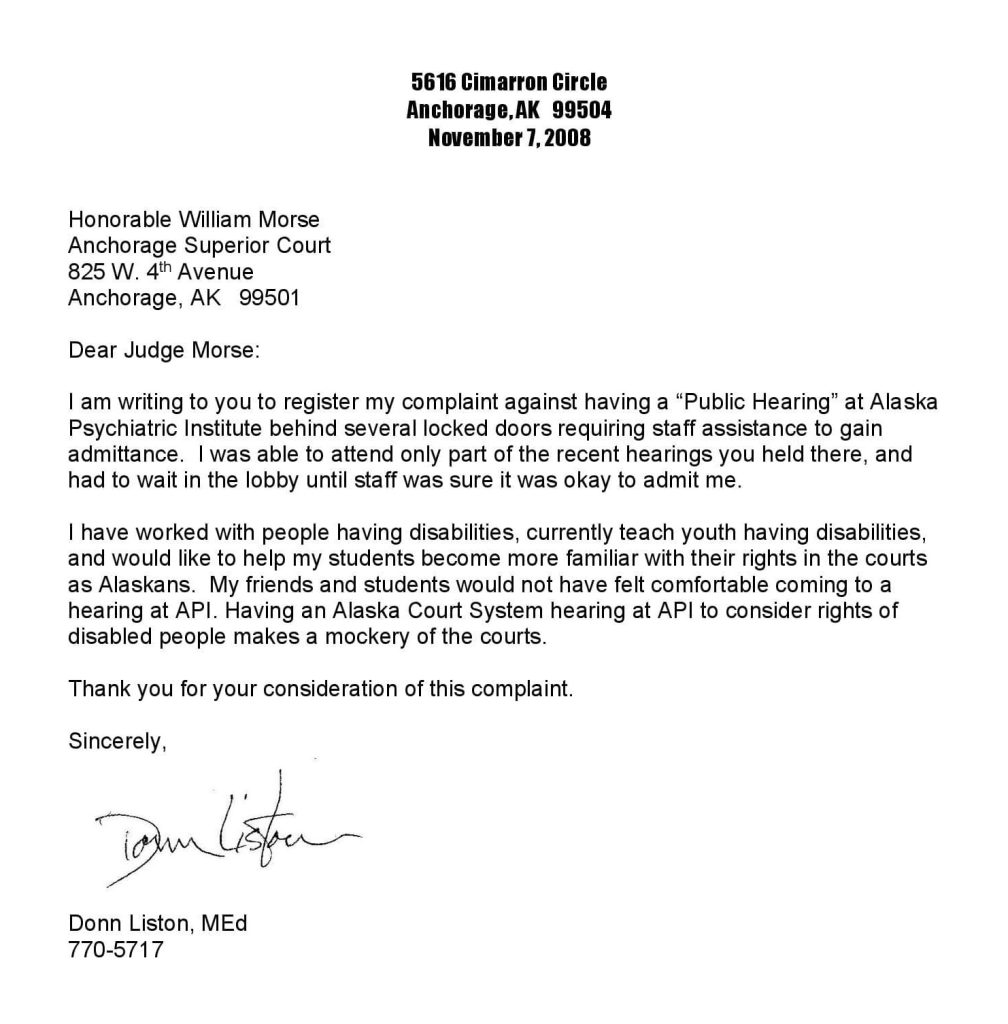
[8] One Drug, Two Faces, Alex Berenson, NYT March 25,2008
